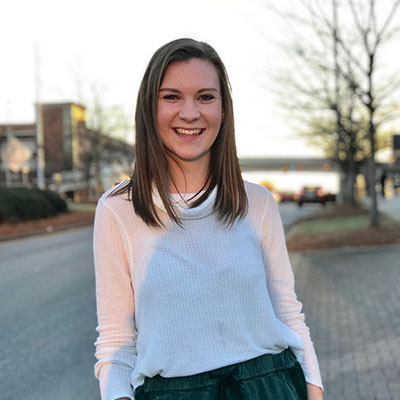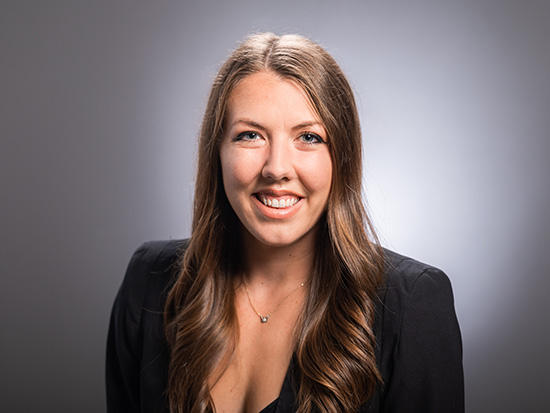Remy Meir, a senior majoring in the Undergraduate Neuroscience Program, writes about her experiences in the program and at UAB.
During most of my high school career, I found myself struggling with a secret. I watched my brother suffer from a drug addiction that stemmed from prescription painkillers. I wanted to turn a blind eye to the situation, but the scientist inside me wanted to understand what guided his actions, what chain of events led him to this predicament. This experience drew my attention to the curiosities of the brain and its ability to guide our behavior, inspiring me to major in neuroscience. While I had already been captivated with neuroscience, my first step into the field came my freshman year when I took Neuroscience of Addiction with Dr. Robin Lester. That first real taste of neurobiological knowledge had me hooked.
 After my freshman year, I joined the lab of Dr. Robert Sorge, which focuses on immune modulation of pain and addiction for comprehensive therapeutics (IMPACT). My main project was driven by the CDC and FDA pressuring doctors to reduce opioid usage in the clinical setting. However, with the growing issue of pain disorders, we wanted to find an alternative that would continue to alleviate patients’ pain with prescription painkillers while preventing them from potentially developing an addiction. In order to accomplish this goal, I utilized a mouse model to study the ability of drug pairing to reduce the negative side effects of prescription opioids, such as addictive potential and tolerance, while maintaining the analgesic properties. The Undergraduate Neuroscience Program allowed me to completely immerse myself in this research through a summer spent in the Honors Neuroscience Research Academy. Having this intensive experience allowed me to gather valuable data that I was able to present at conferences such as the 2017 American Pain Society Conference.
After my freshman year, I joined the lab of Dr. Robert Sorge, which focuses on immune modulation of pain and addiction for comprehensive therapeutics (IMPACT). My main project was driven by the CDC and FDA pressuring doctors to reduce opioid usage in the clinical setting. However, with the growing issue of pain disorders, we wanted to find an alternative that would continue to alleviate patients’ pain with prescription painkillers while preventing them from potentially developing an addiction. In order to accomplish this goal, I utilized a mouse model to study the ability of drug pairing to reduce the negative side effects of prescription opioids, such as addictive potential and tolerance, while maintaining the analgesic properties. The Undergraduate Neuroscience Program allowed me to completely immerse myself in this research through a summer spent in the Honors Neuroscience Research Academy. Having this intensive experience allowed me to gather valuable data that I was able to present at conferences such as the 2017 American Pain Society Conference.
My time working in the IMPACT lab has been the most impactful part of my college experience, no pun intended. Without the dedicated mentorship and inquisitive environment, I would not have developed into the young scientist that I am today. I owe a lot of my success in college, from presentation opportunities to the Goldwater Scholarship, to the support I got from Dr. Sorge and the entire lab team.
However, I did not just find support in my lab. One of the things I loved most about being part of the Honors College and UNP is the constant encouragement to pursue my goals wholeheartedly. This has driven me to get involved on campus in a number of roles, from Honors College Ambassador to co-chief editor of Inquiro. Every role I took on gave me a new outlet to impact other UAB students and find a way to help them reach their own educational goals. While I pursued many opportunities on campus, my interests also kept me searching beyond the UAB bubble. Knowing that I had the full support of UAB behind me, I spent the spring of my junior year studying abroad in Oslo, Norway. While studying abroad at the University of Oslo, I worked under the guidance of Dr. Siri Leknes and helped design an experiment that would address the role of stress as a potential risk factor for addiction in a human population.
The curiosity I have fostered here at UAB will have me graduating with a major in neuroscience and minors in public health and mathematics. After graduation, I will return to Oslo, Norway for ten months on a Fulbright Scholarship to complete the research project I designed with Dr. Leknes. Following completion of my Fulbright, I will return to the United States to pursue a Ph.D. in neuroscience with a continued focus on pain and addiction.
I never would have been able to achieve these goals or dream this big if it was not for the education and network that I gained through the UNP. Whether it was Dr. Kana being a member of my Fulbright committee or Dr. Gavin writing me another letter of recommendation, at every corner there was someone driving me towards success. Sometimes all it takes to get where you are going is to have incredible people believing that you can; then you will start to believe too.


